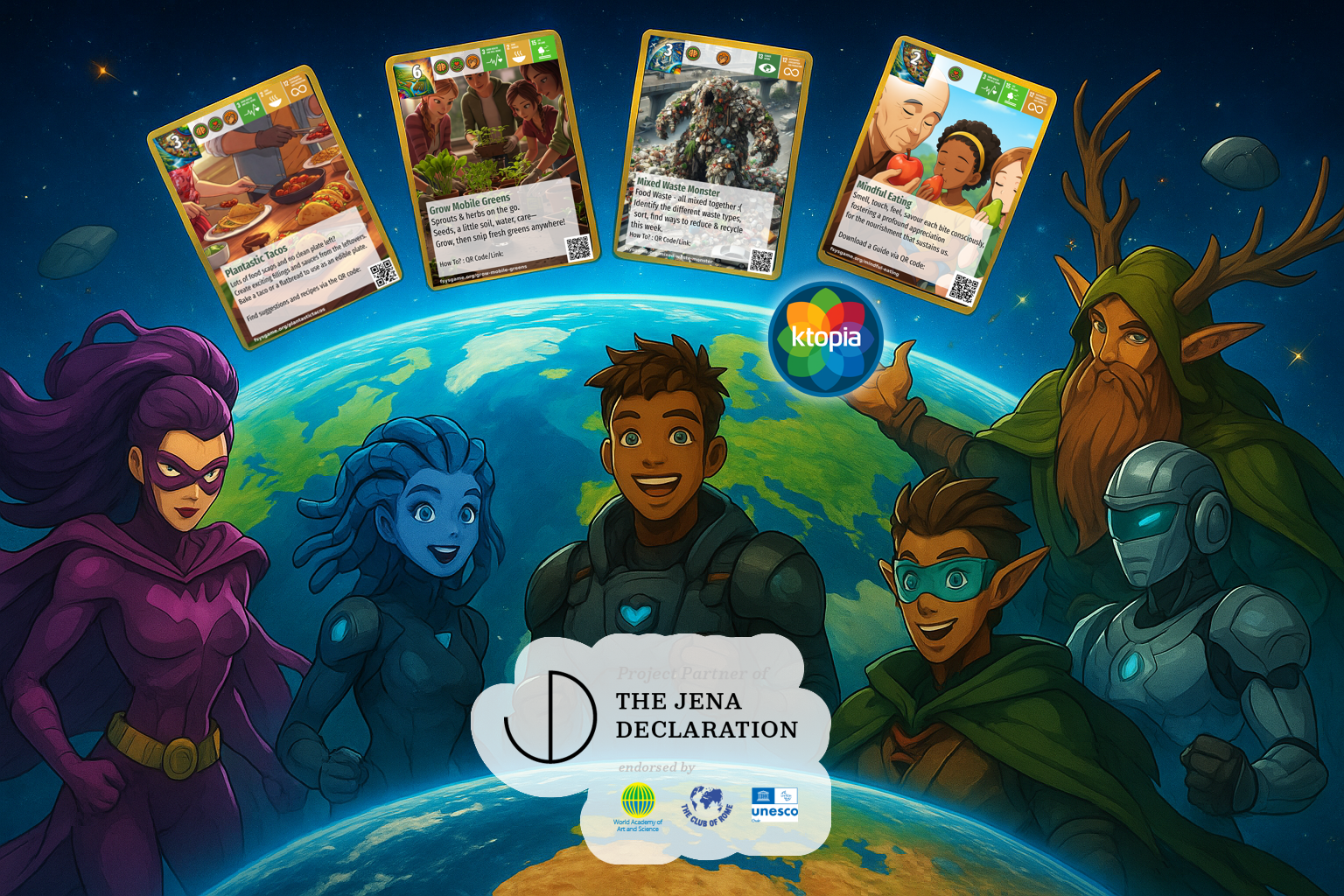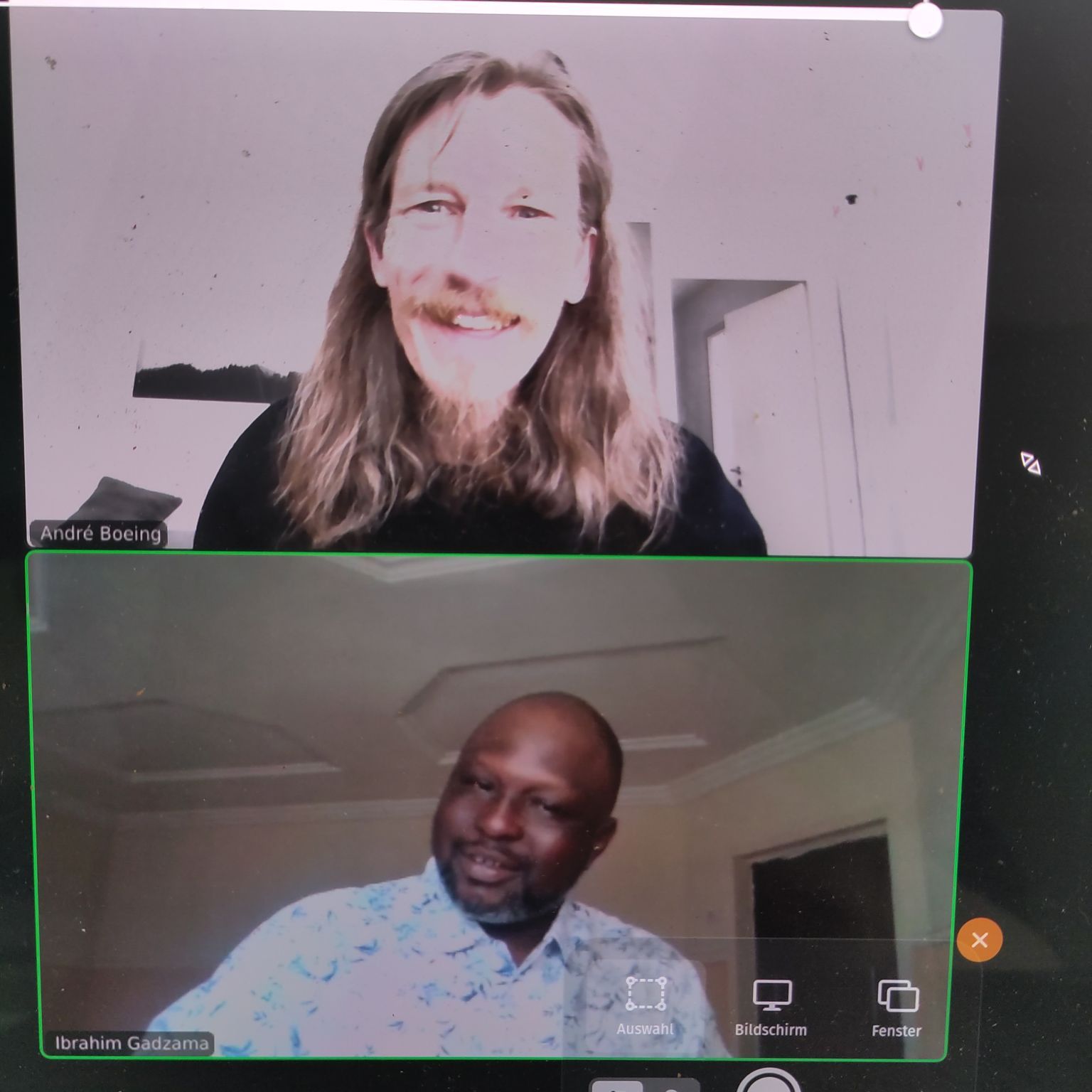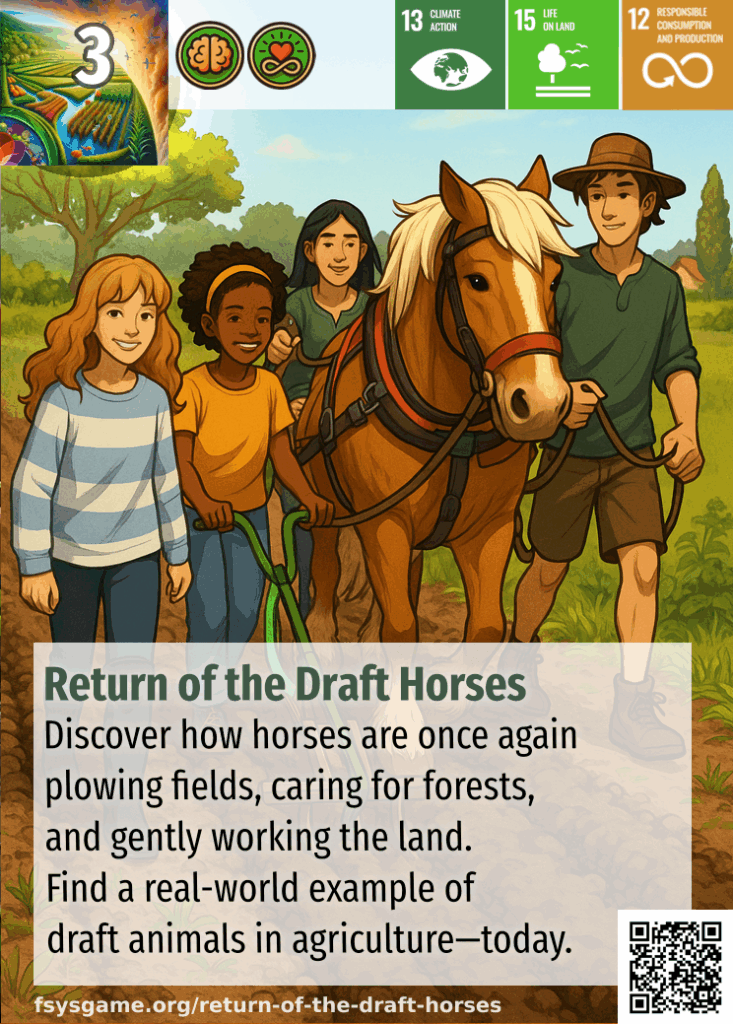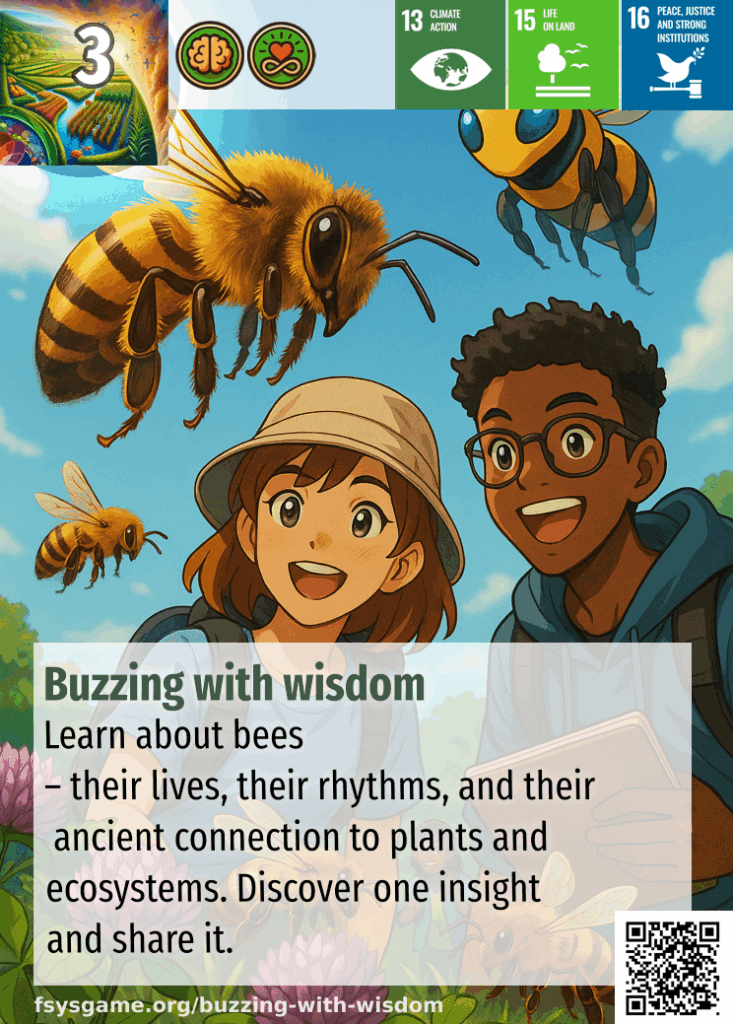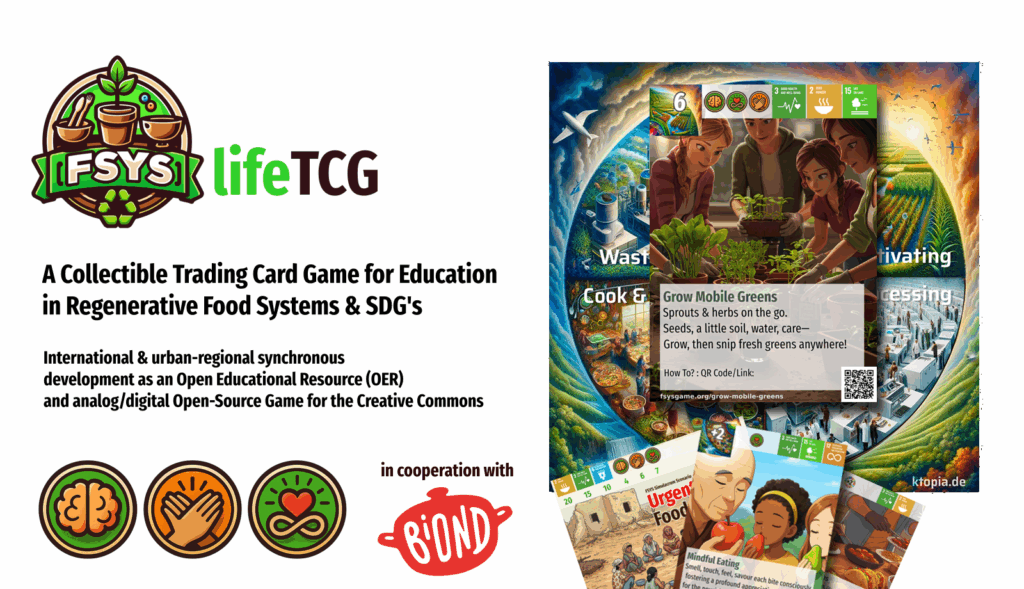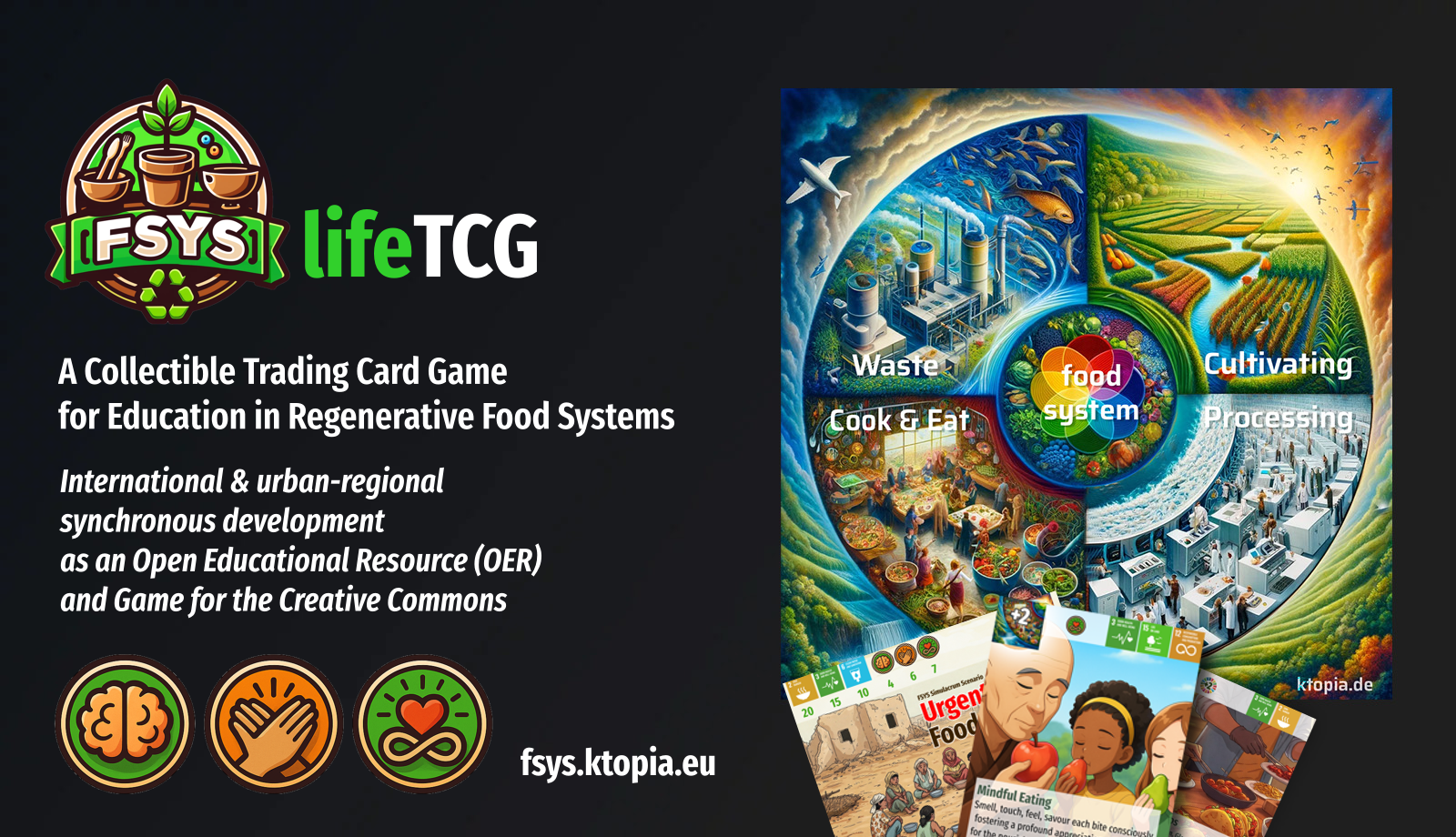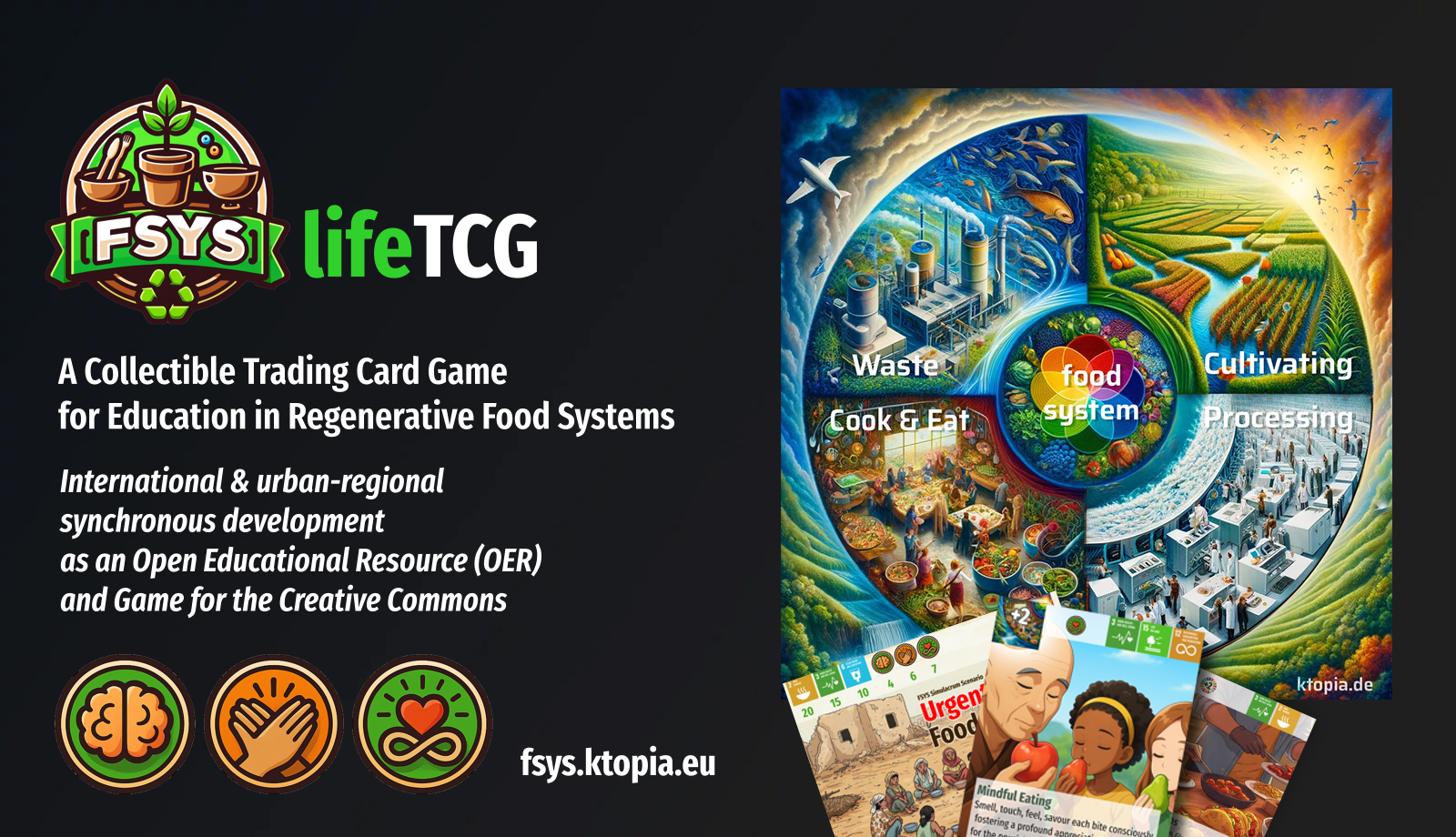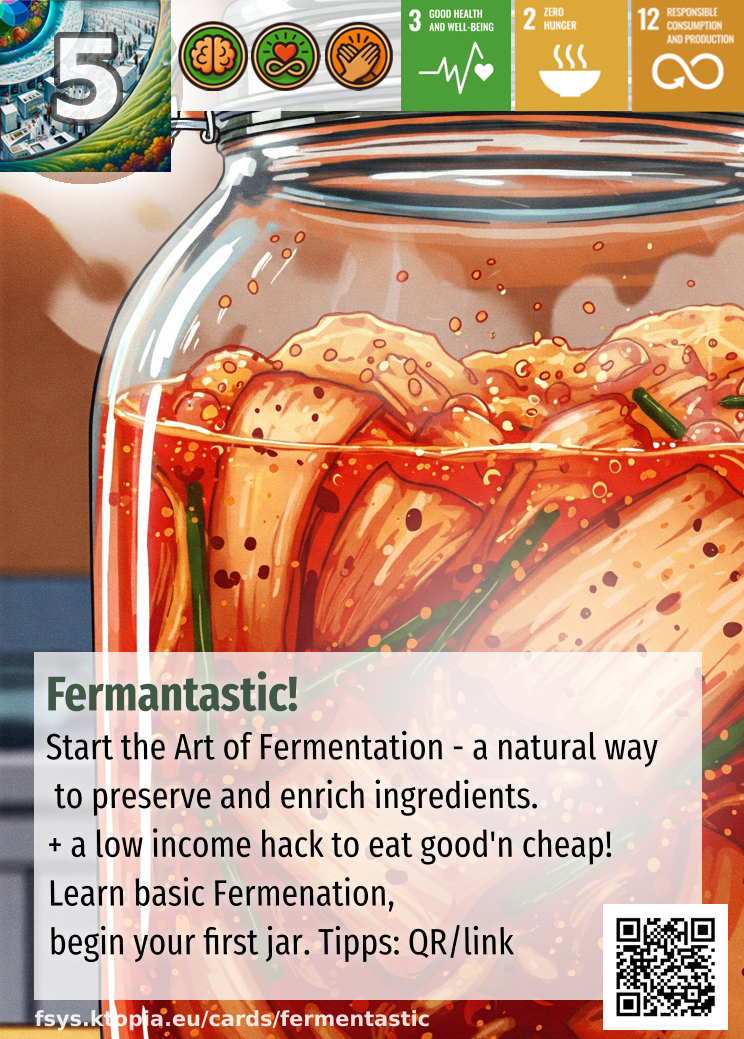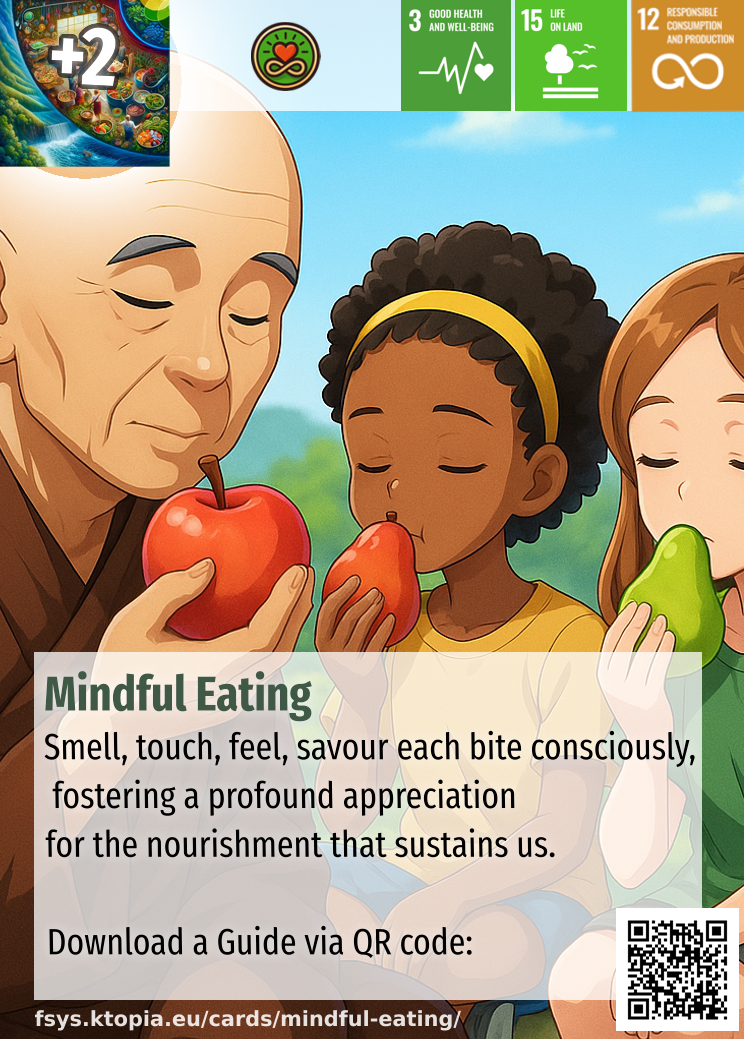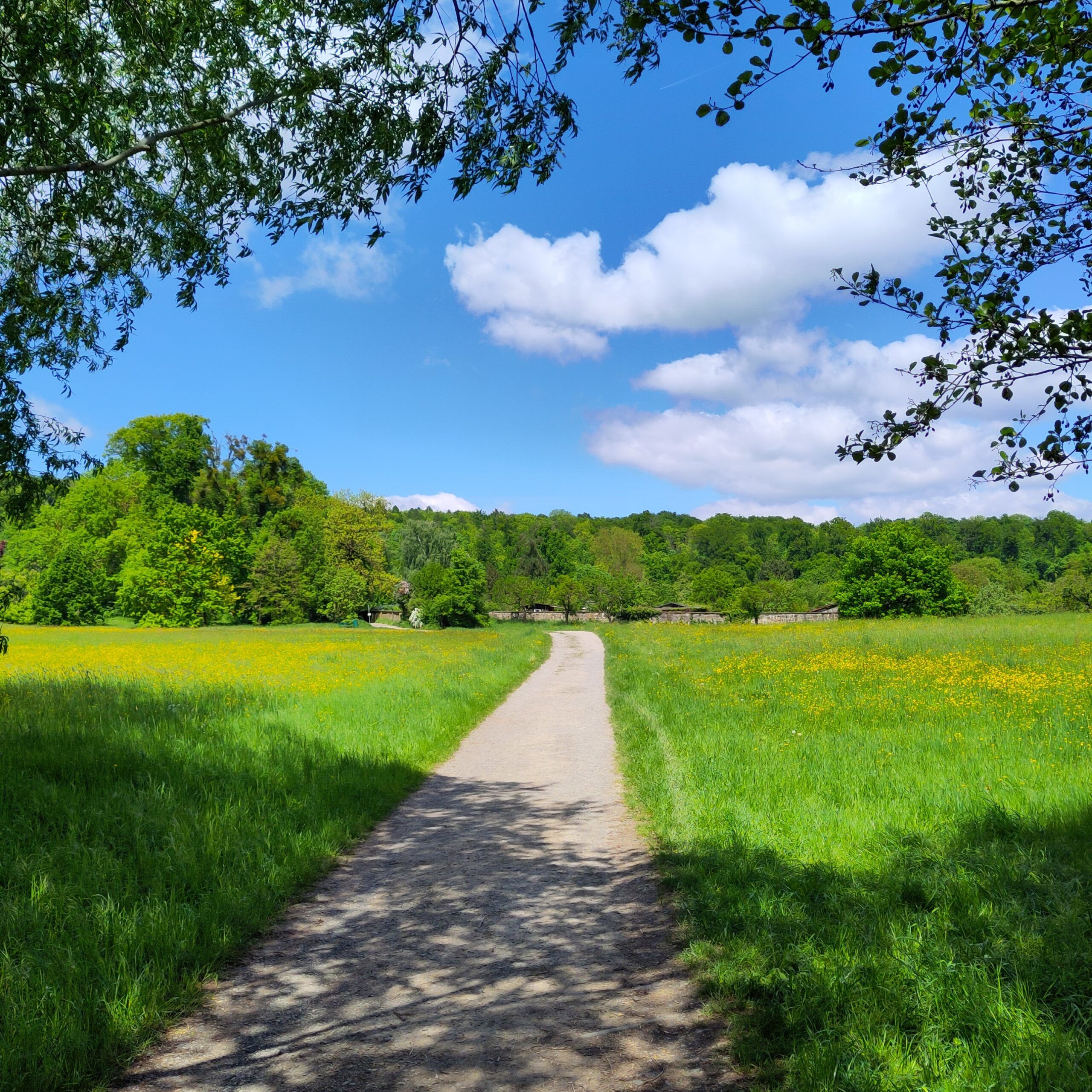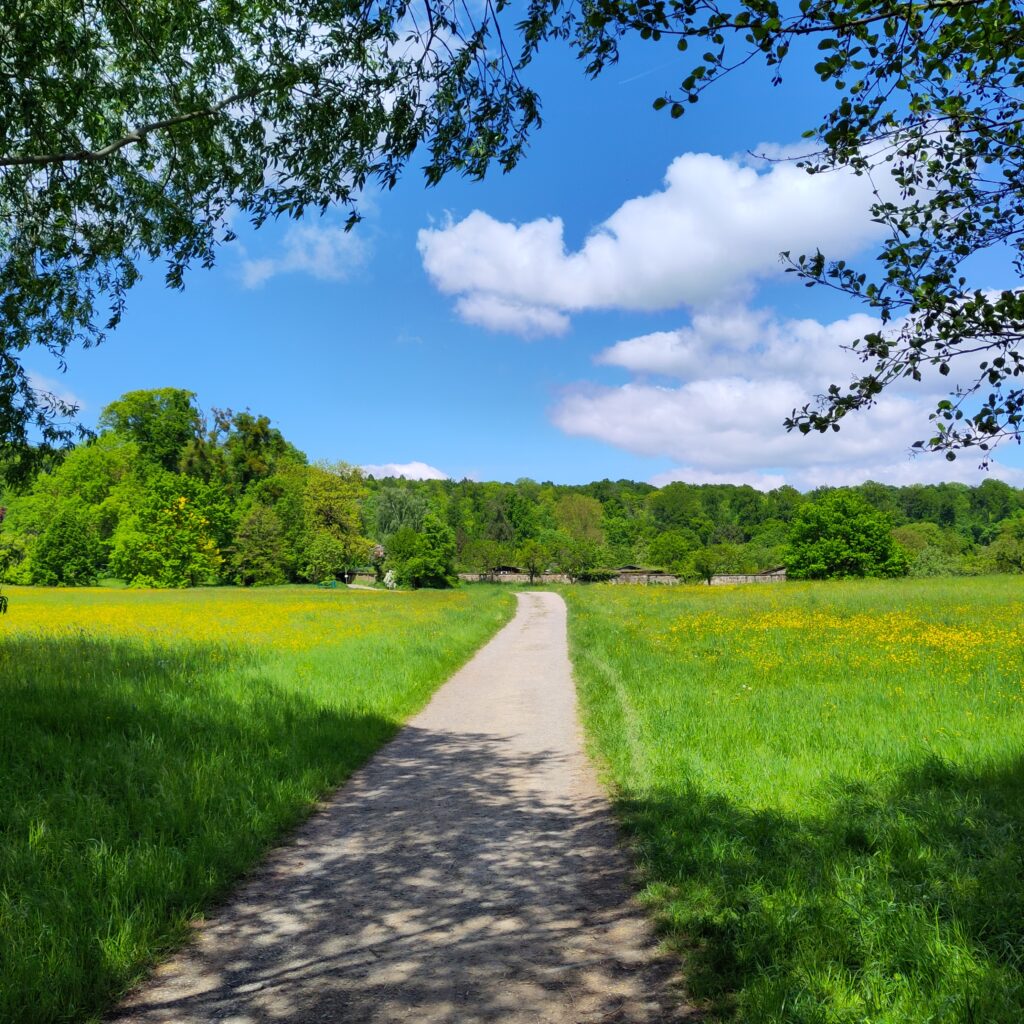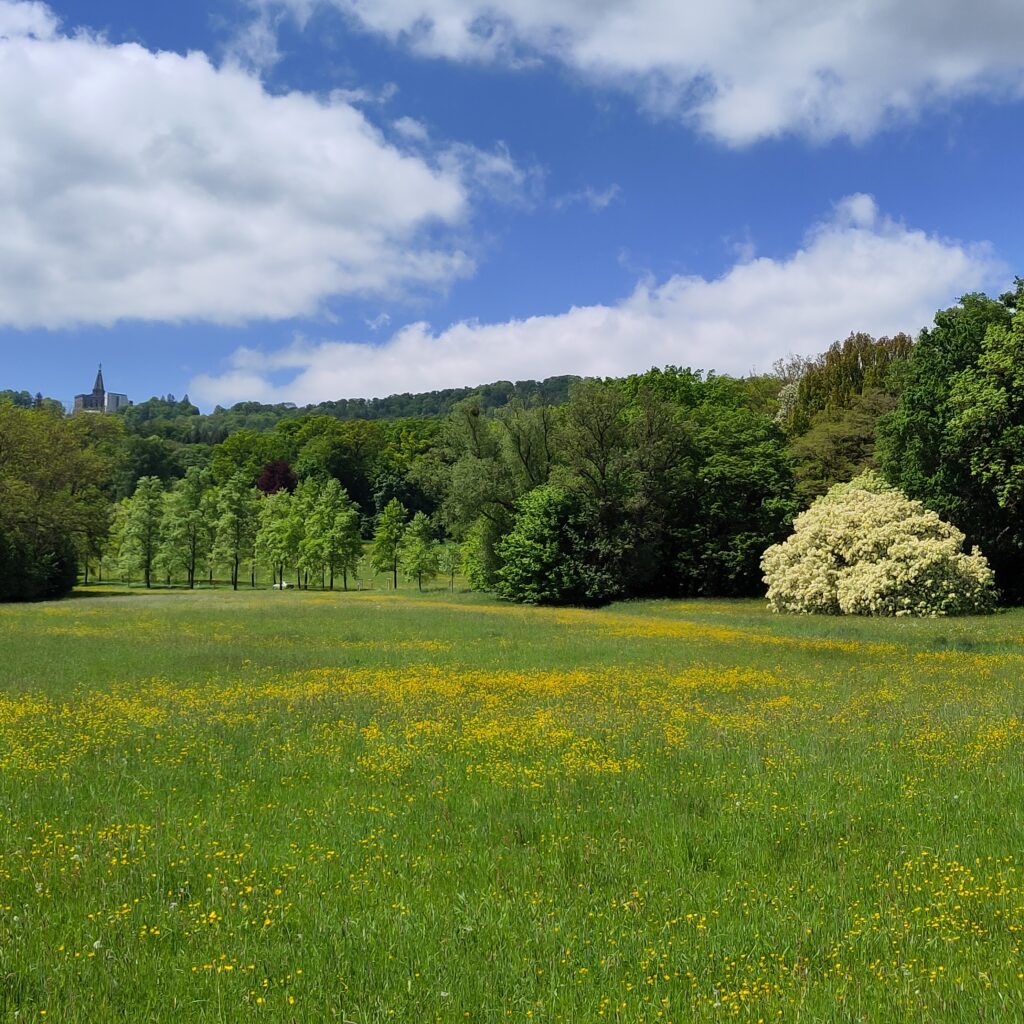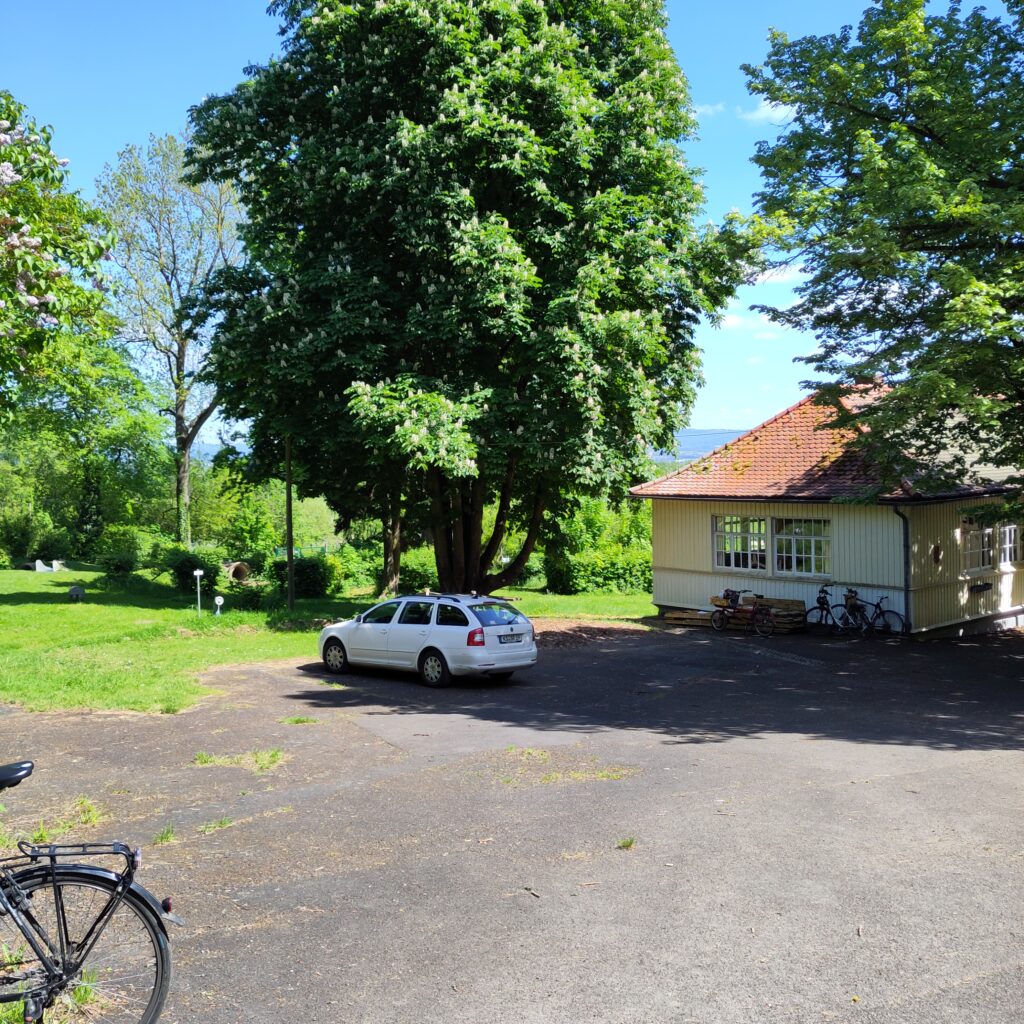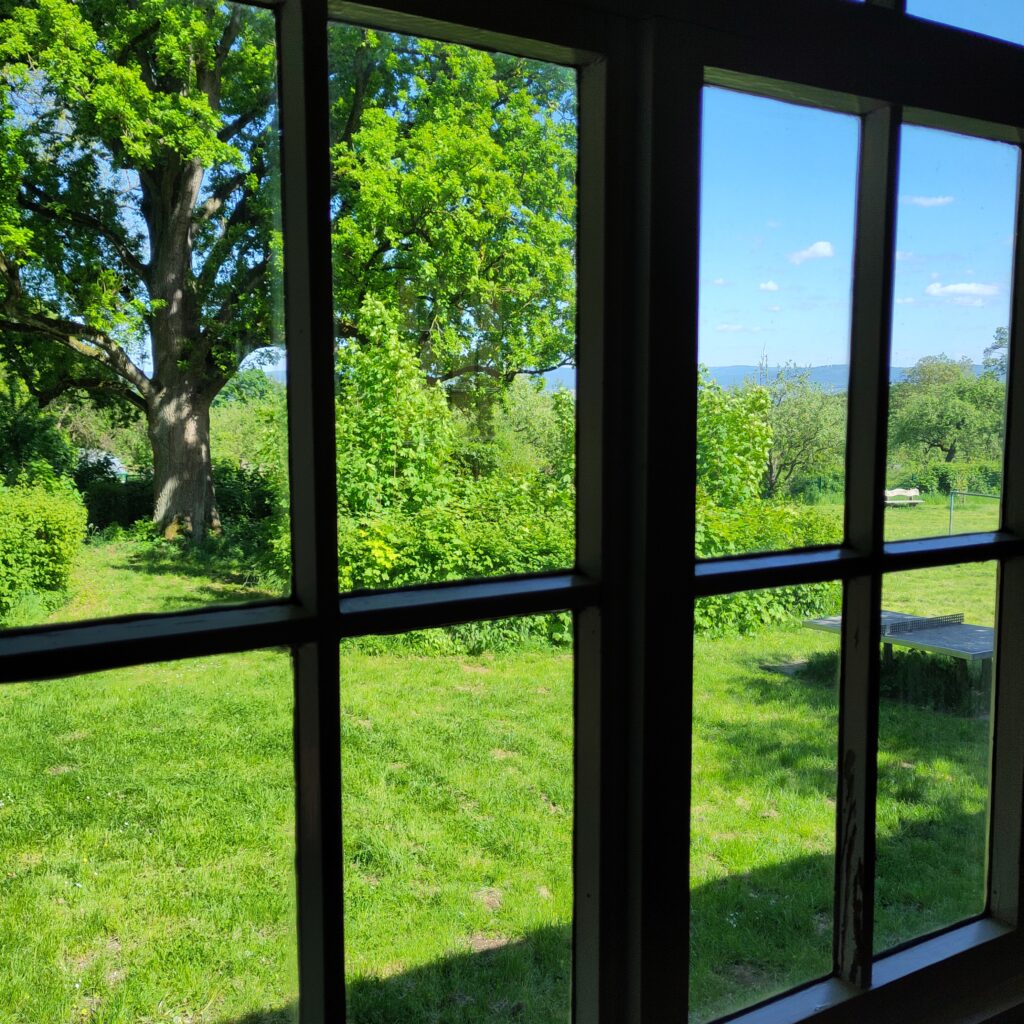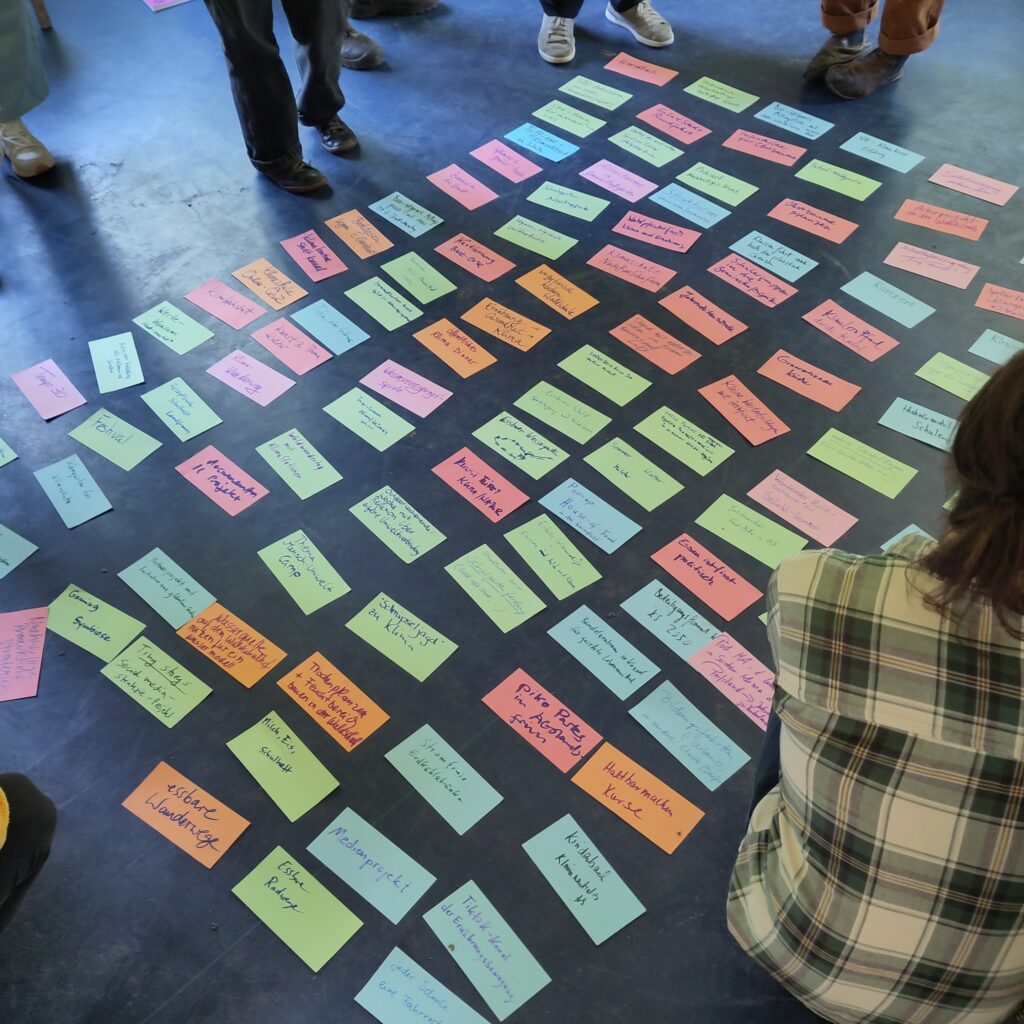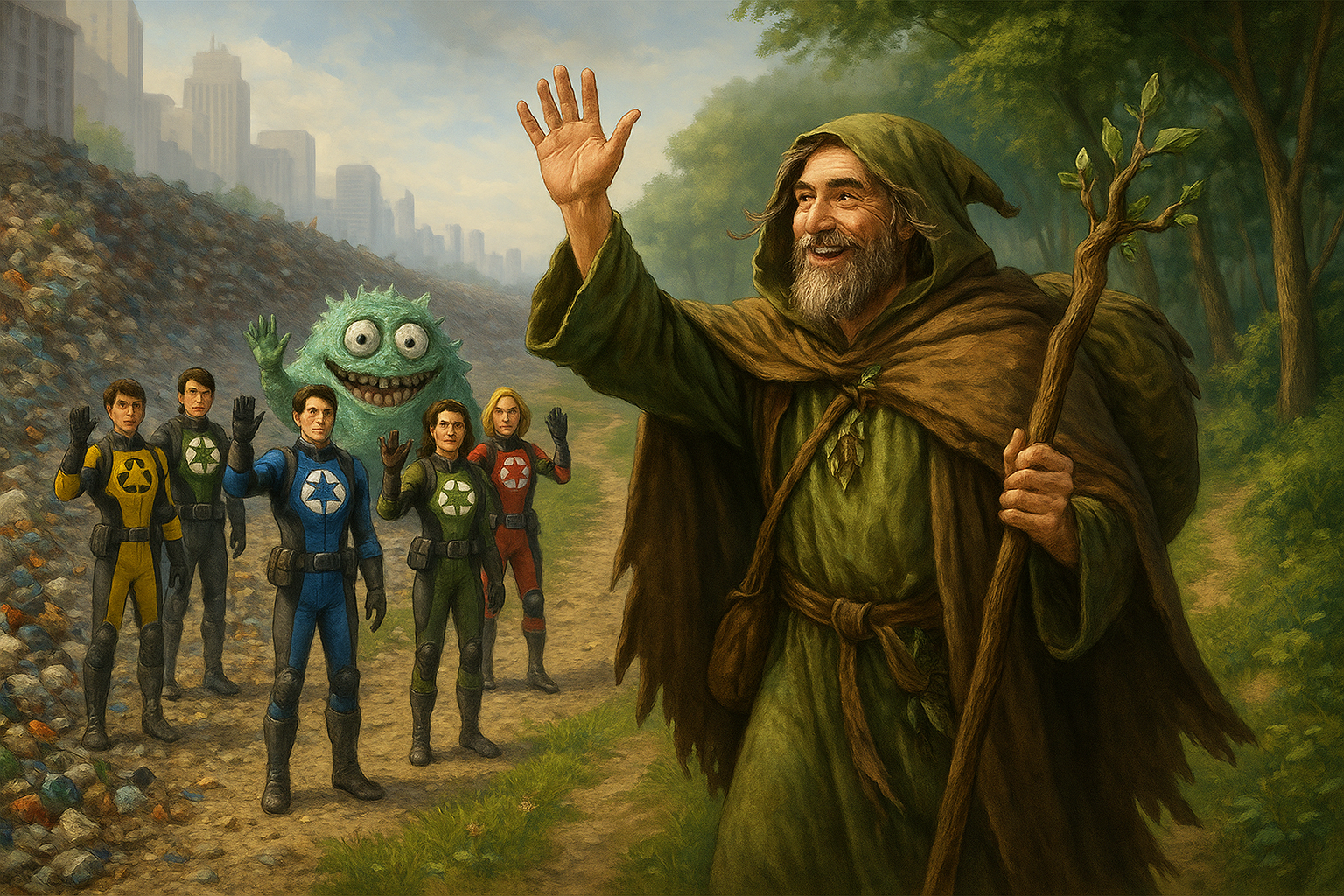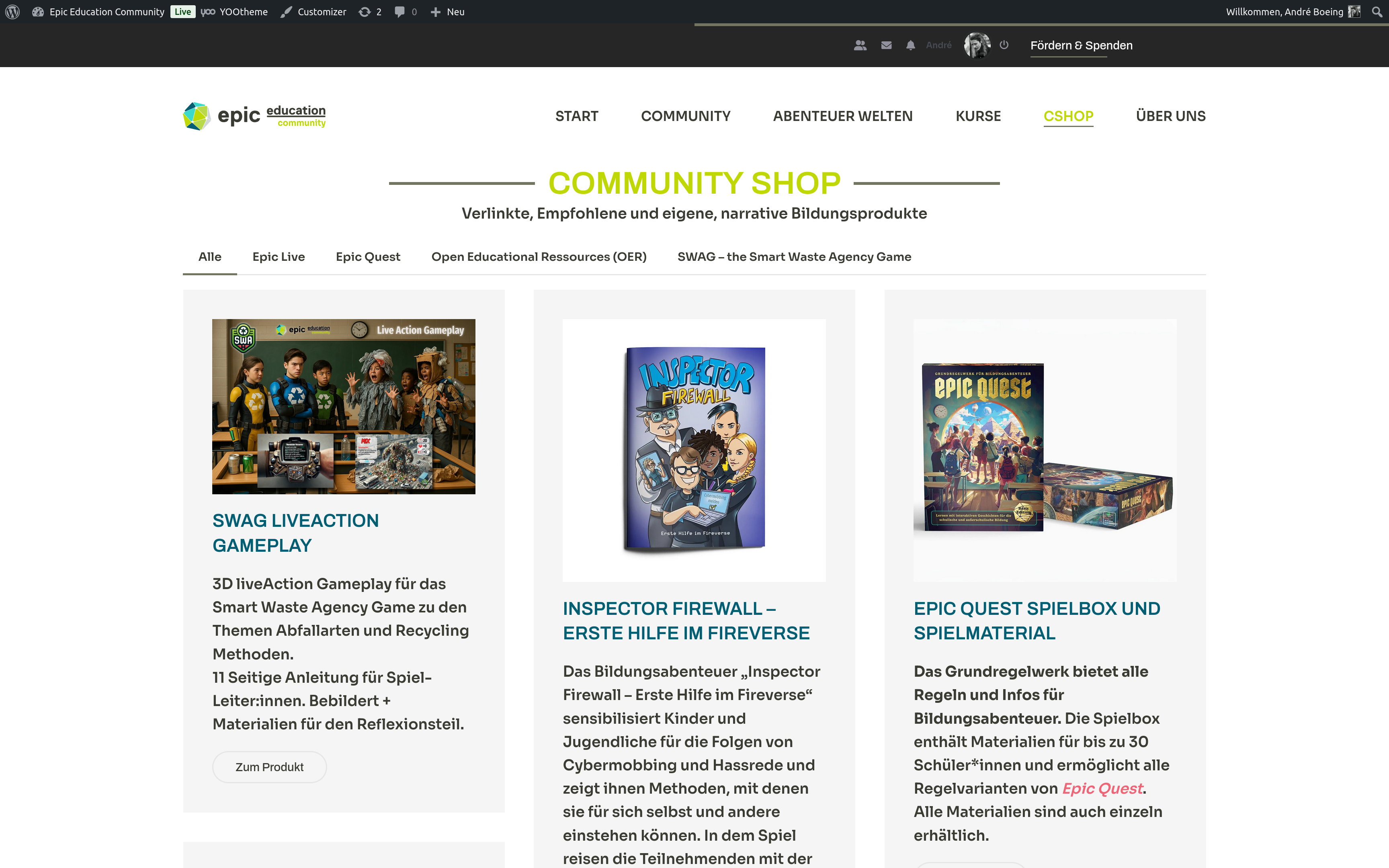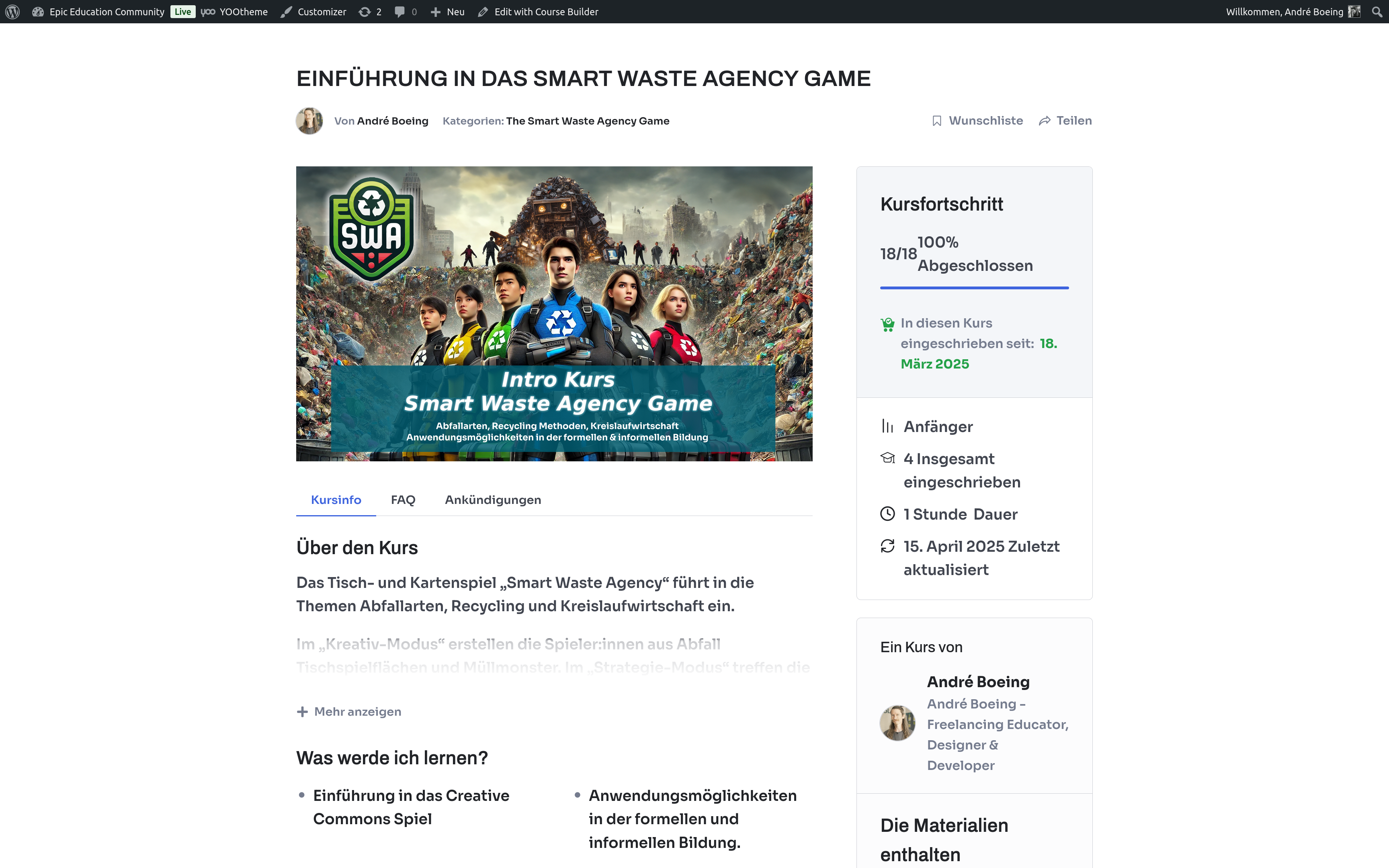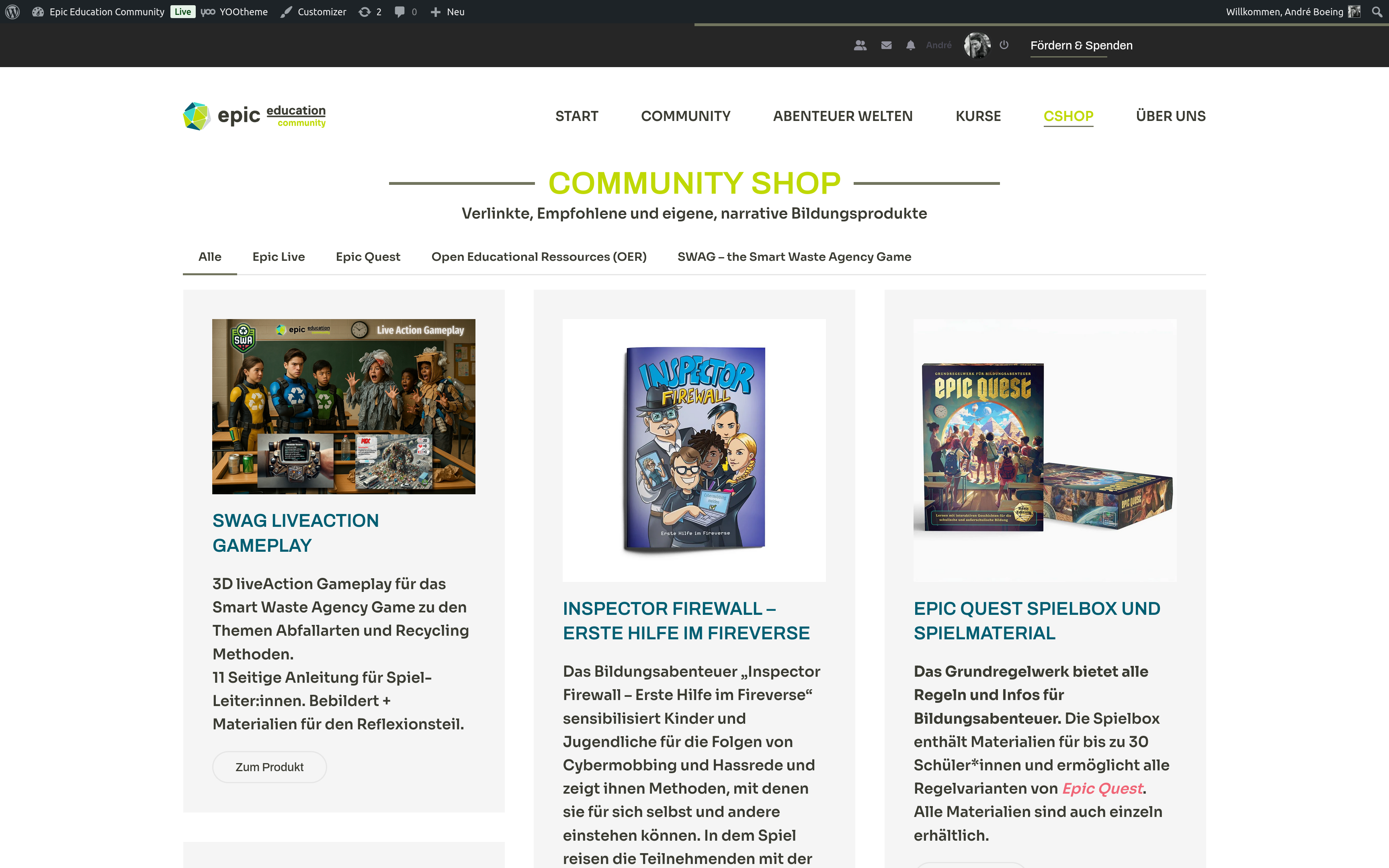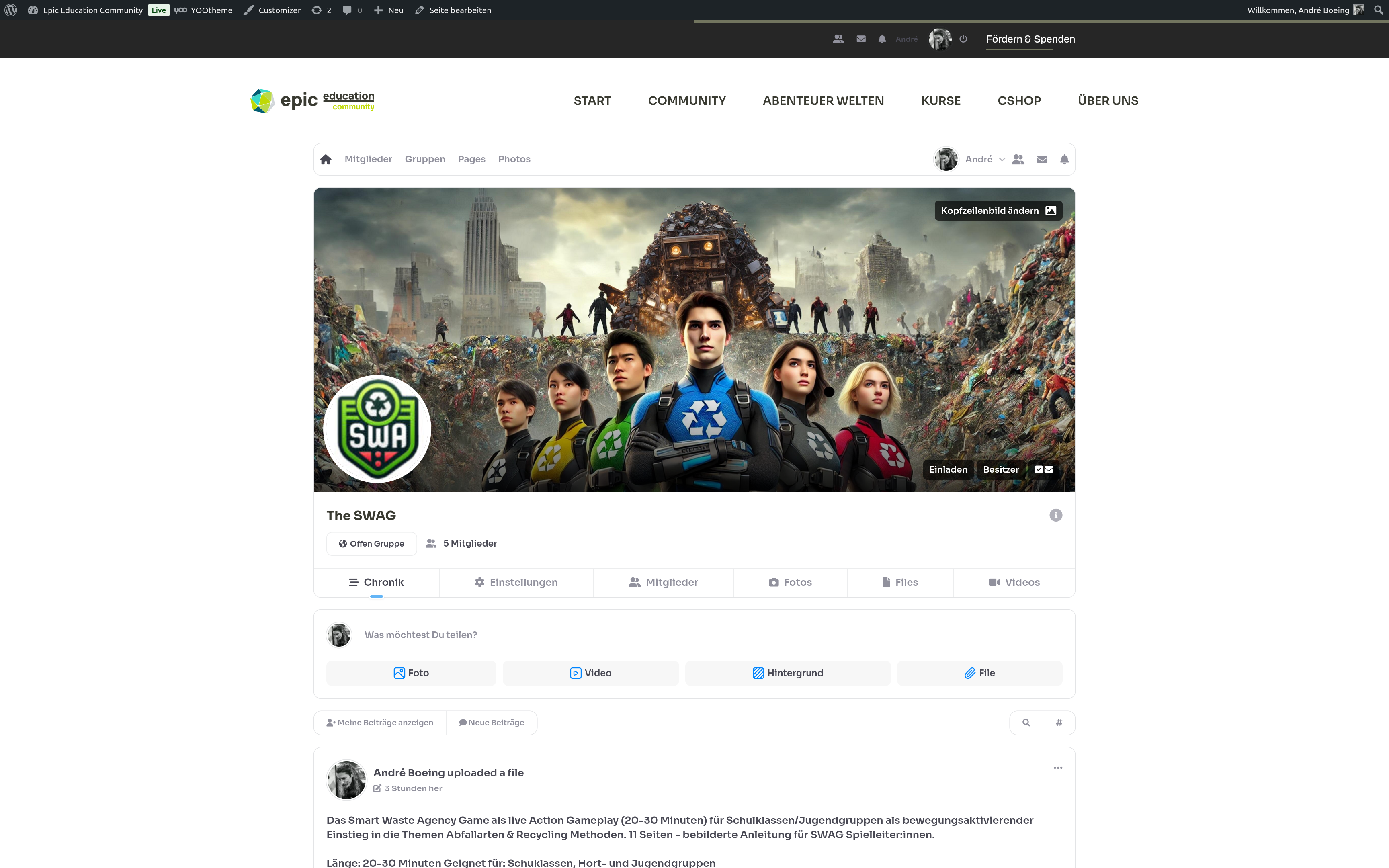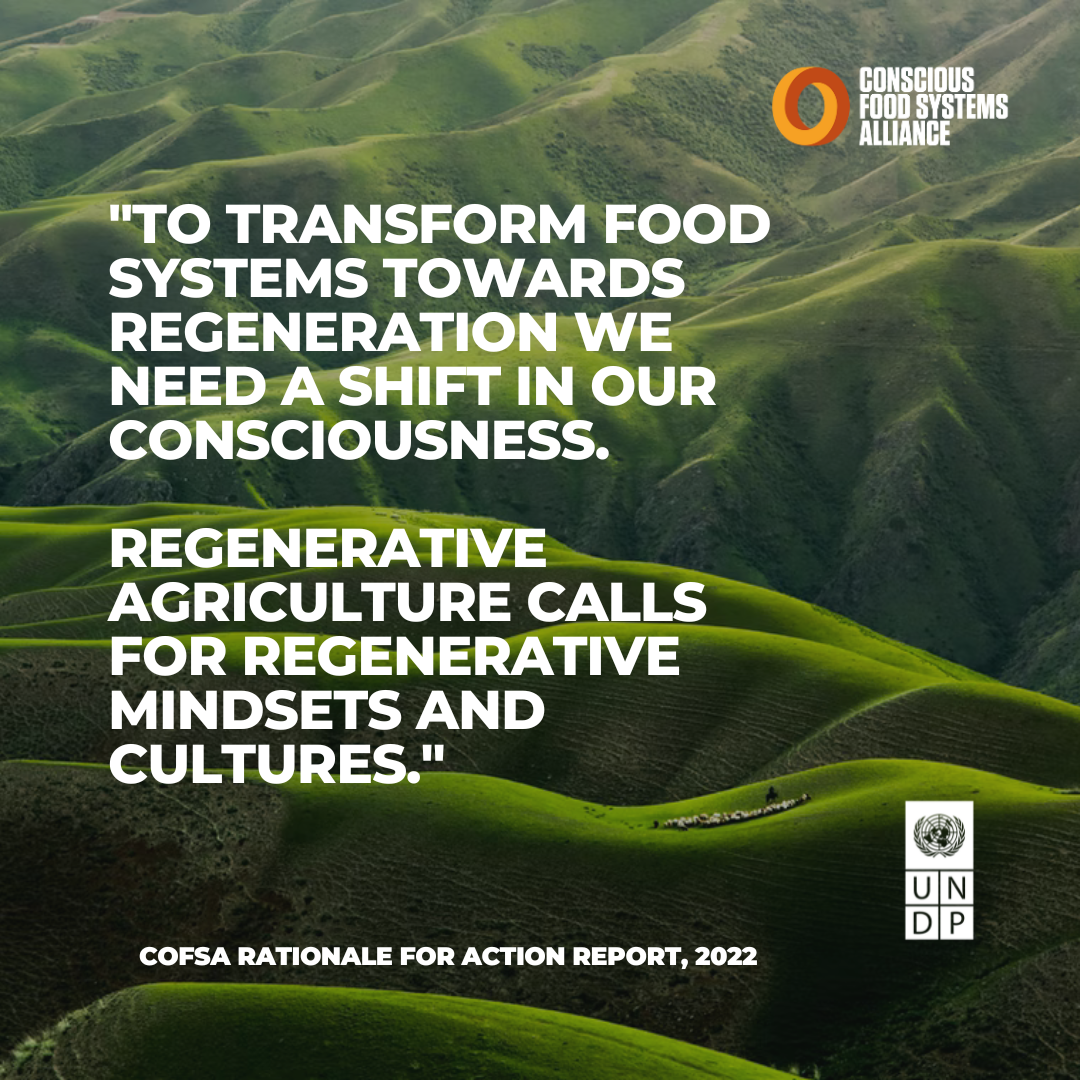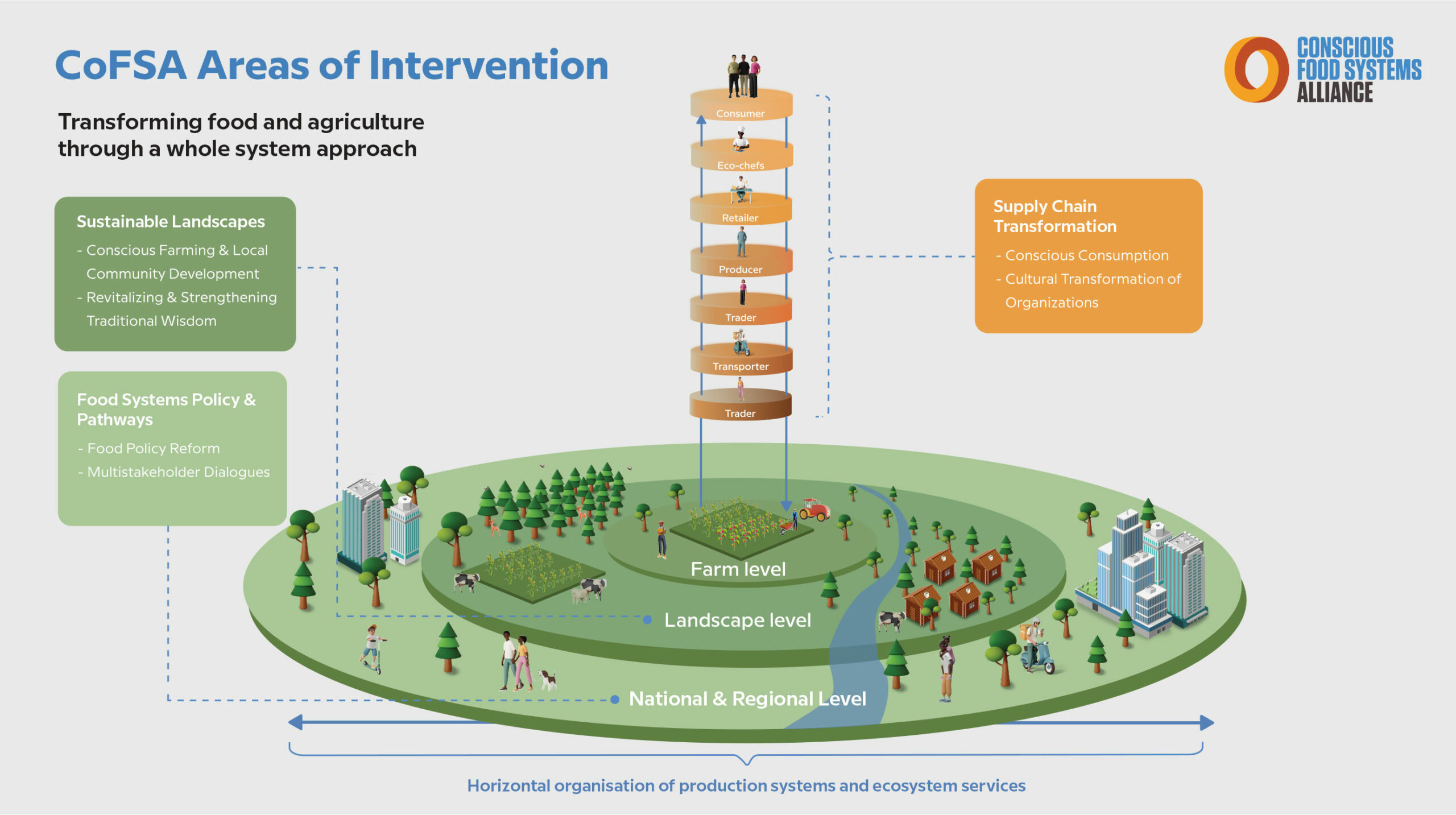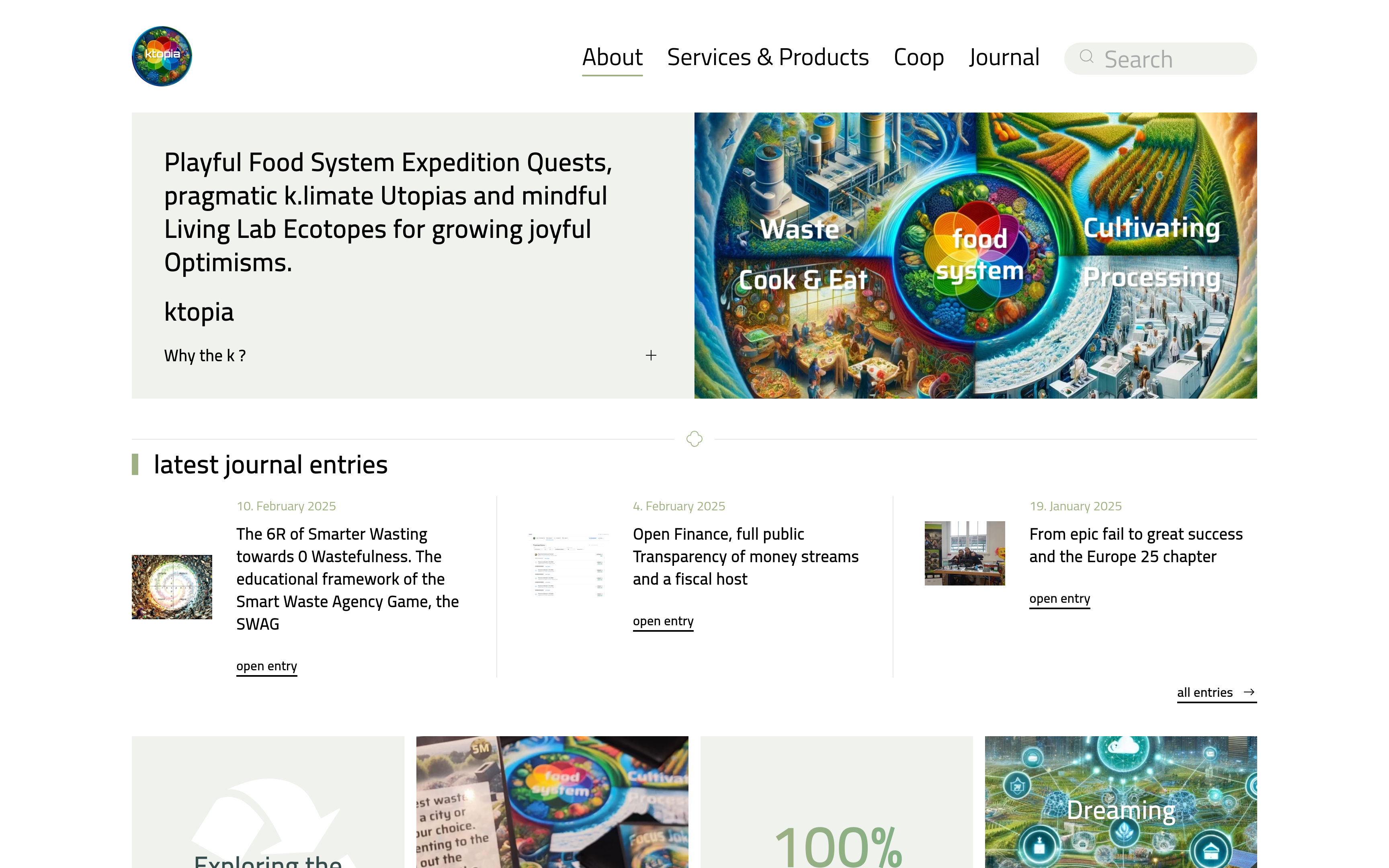New Partnership with The Jena Declaration at UNESCO Chair on Global Understanding for Sustainability
It is with great joy to announce our fresh ktopia project partnership with The Jena Declaration (TJD) at the UNESCO Chair on Global Understanding for Sustainability.
The principles of the Declaration resonate deeply with Ktopia values and approach to open, grassroots educational game world design intended to spark joy—joy in actively becoming involved in “The Great Quest” of learning to live sustainably, regeneratively, planetary.
“Meaningful, sustainable change can only be achieved if every person on the planet changes their everyday routines, practices, and mindset. This must be true in business, government, schools, and at home.” is one of TJD’s principles.
Play sparks curiosity and invites us to face challenges with joy. Games offer ways to explore, grow, and even learn through failure. Ktopia invites people into narrative education worlds about sustainable living and supports them in co-creating open-source, analogue–digital games as Open Educational Resources. (OER)
In our partnership we wish to explore collaboration in the playful appropriation of the principles of The Jena Declaration through approaches inspired by co-creative game design, prioritizing Africa–Europe partnerships. We also explore collaborative promotion and dissemination of Ktopia eduGames (SWAG, FSYSgame) in combination with the principles of the TJD.
The last weeks have been a wonderful “getting to know each other” with TJD’s Dr. Martin Repohl and UNESCO Chair Prof. Dr. Benno Werlen. To experience Benno’s passion, compassion, commitment, impressive background, and wide, interdisciplinary thinking is inspiring. To join a rich, soil network of currently 65 worldwide TJD project partners—including the World Academy of Art and Science as well as the Club of Rome—makes us grateful.
To a fruitful 🌳 and wonderful partnership. A joyful “Cheers!” 🥂
with our ktopia project partners Ibrahim Gadzama, Jana Fuhrmann-Heise and ktopia founder André Boeing
#thejenadeclaration #TJD #UNESCO #SustainableDevelopment #SDG #Games #Education #Open #fsys #theSWAG #ktopia
